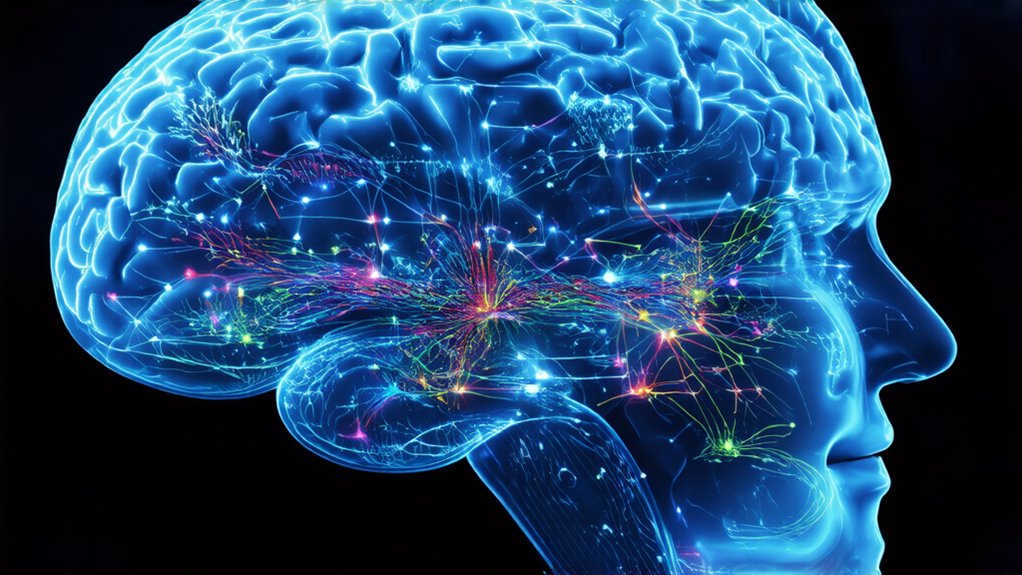While artificial intelligence dives into the messy world of GLP-1 drugs, it’s uncovering risks that doctors might have missed, you know? AI algorithms plow through massive datasets, spotting potential dangers with GLP-1 receptor agonists. It’s like AI’s saying, “Hey, humans, wake up!”
Machine learning models learn to flag patterns of adverse reactions, sifting patient records, social media rants, and clinical studies. NLP steps in, decoding unstructured text to reveal overlooked side effects. Oh, and AI’s got this pharmacogenomics thing, personalizing treatments by linking genetic variants to drug safety. Pretty slick, if you ask me.
But wait, genetics play a wild card. AI zeroes in on variants that crank up risks for drugs like semaglutide—up to a third of patients might have them, studies show. It correlates genetic profiles with evidence, letting doctors tweak dosages or swap to safer options. This cuts customization time from weeks to minutes. Sarcastic high-five to AI for outpacing old-school methods.
Now, the side effects hit hard. Gastrointestinal woes like nausea and vomiting? Common as ever. But AI’s exposed graver stuff: pancreatitis, gallbladder issues, kidney problems, even potential thyroid tumors. Mental health dips, like anxiety or irritability, pop up too. Social media chatter? AI’s mined it for gems like numbness that flew under the radar. Blunt truth: these drugs aren’t picnics. Detected 21 potential ASEs in a recent study using AI and social media analytics, highlighting even more overlooked risks associated with GLP-1 receptor agonists.
AI doesn’t stop at playing detective; it predicts trouble. Algorithms forecast who might puke from gastrointestinal effects or lose lean muscle mass. By spotting high-risk folks early, treatment sticks better. Computer simulations slash costs and time, ditching endless lab tests.
And for the future, AI hunts alternatives—plant-based extracts or non-peptide drugs that bind to GLP-1 receptors without the drama. Virtual screening flips through thousands of compounds, speeding up trials. It’s almost like AI’s mocking traditional drug development, saying, “I got this.” Moreover, AI enhances medication safety by predicting adverse reactions through the integration of pharmacogenomics.
In the end, AI’s turning GLP-1 risks into stepping stones for better obesity treatments, one data point at a time. Yeah, it’s that game-changing.




